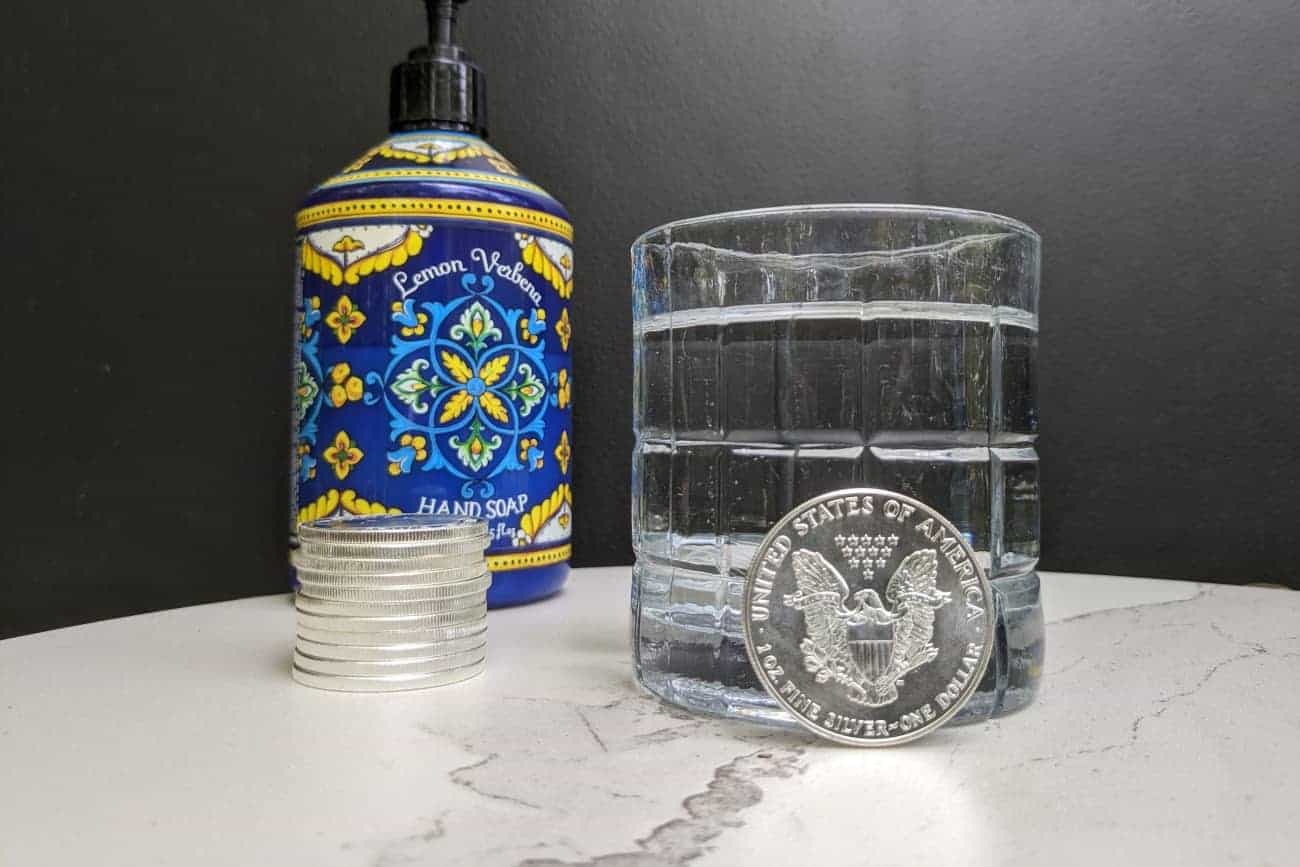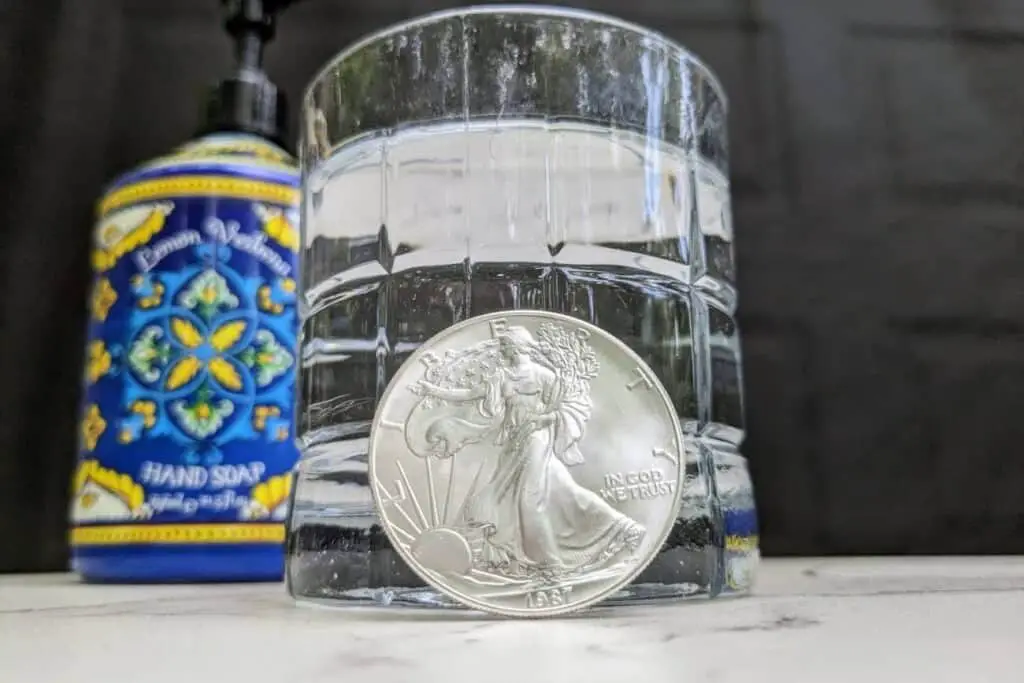How to Safely Clean Silver Coins without Losing Value
Our guide to removing dirt and grime without damaging your precious investment.
By Jane Pardo | Updated June 23, 2023
Cleaning silver coins, particularly proof or uncirculated coins, is a process many coin collectors strongly advise you shouldn’t do under any circumstances.
However, if you must clean your slightly worn coins, there are safe ways to remove dirt, grime, and other unwanted surface gunk.
Learn how to clean silver coins using safe, gentle methods that won’t diminish their value. We will also discuss effective yet more abrasive cleaning methods for unknown finds, coins with no collectible value, and coins you don’t intend to sell.
How to clean silver coins without losing value
If you’re a silver enthusiast collecting rare, ancient, or foreign coins, you want to preserve them in their original condition to avoid devaluing them.
We recommend these gentle cleaning methods to clean precious metals with numismatic value in the safest way possible to preserve their worth:
Method 1. Mild soap and warm water
To maintain their worth, clean silver coins by soaking them in warm distilled water with mild, non-detergent soap for up to 2 hours, flipping them every 30 minutes. Rinse thoroughly to remove grime and dirt without damaging your previous metal.

- Avoid using tap water from your faucet. Its chlorine content could discolor your silver coins.
- Soaking your silver coins in warm distilled water repeatedly is a good alternative if you want an even milder cleaning process.
- Pat dry or leave to air dry. NEVER rub your silver coins with your fingers or a cloth to avoid damaging the surface.
Method 2. Olive oil
Olive oil is generally safe for cleaning heavily encrusted coins as long as you don’t do any scrubbing or polishing. It will separate dirt buildup from the surface although the process takes a long time.
- Soak your coins in olive oil for several hours up to four weeks or several months to dissolve the crust and gunk without ruining their visual appeal.
- Change the oil as necessary.
- Wash thoroughly with water and mild soap. Pat dry.
How to clean non-collectible silver coins (even if they could lose some value)
Did you find a few silver-looking dimes with a metal detector while scouring the beach? If they seem unrecognizable, you probably want to clean them a little to reveal what they really look like.
But if you want to take one step further and have your coins looking anew, try the following DIY cleaning methods.
Remember, only do them if you don’t care about monetary value! These methods mean you take the risk of damaging your silver coins to restore their pristine luster.
White vinegar
White vinegar is an excellent all-purpose household cleaner thanks to its acidity. It contains 5% to 10% acetic acid, which helps counteract dirt buildups and remove unsightly stains.
You can effectively clean silver coins with vinegar because this cooking staple is colorless, natural, and non-toxic.
- Soak your silver coins in a glass filled with white vinegar for 30 minutes, a few hours, or overnight.
- You can use a soft-bristled toothbrush to scrub the coins very gently.
- Polish and wipe clean with a soft cloth.
Toothpaste
Cleaning silver coins with toothpaste can revive the appearance of dull coins.
- Apply a small amount of toothpaste on your silver coin.
- Gently rub the surface with your finger or a soft brush.
- Wash with clean water, and dry with a soft cloth.
Baking soda
Baking soda contains abrasive ingredients that can help remove mild tarnish.
- Cover a plastic container completely with aluminum foil.
- Generously sprinkle some baking soda on the bottom.
- Carefully place your tarnished coins in the container, cover them with baking soda, and pour hot water to immerse them for 5 minutes.
- Gently scrub the tarnish with a soft brush.
- Finally, rinse with cool water. Repeat the process if needed.
Commercial cleaners to avoid when cleaning valuable silver coins
Chemicals and solvents can be too harsh for collectible coins with numismatic value. Avoid the following cleaning agents and solutions, which can cause irreparable damage to your silver coins.
- Jewelry cleaners
- Abrasive polishing agents
- Wire brushes
You can use these cleaning solutions only if you don’t plan to resell your silver coins. They can, in fact, make your dimes and quarters shine brilliantly if the monetary value doesn’t matter to you.
Does cleaning silver coins decrease value?
The quick answer is YES, it can!
Cleaning removes the beautiful patina on old coins
Collectors generally love to see the distinct patina that reveals the rich history of ancient coins. The aged color and corroded surface of old coins contribute to their aesthetic appeal, making them more valuable in the eyes of those collecting silver coins. For example, old Roman bronze coins have a beautiful green patina.
- Destroying the original condition of old silver coins and scrubbing away all the grime will immediately devalue them.
However, if you have well-loved coins with sentimental value that you don’t want to sell, it’s perfectly reasonable to want them clean and shiny. For example, you might have a favorite silver dollar that you carry every day for good luck.
Final thoughts
As seasoned collectors would tell you, it’s best to leave your silver coins uncleaned to avoid destroying their patina, maintain their value, and showcase their distinct personality, especially rare, antique coins.
Take extra caution if you decide to clean your silver coins on your own. When in doubt, consult a rare coin specialist to avoid accidentally damaging your valuable coins.
Written by Jane Pardo

Jane Pardo is our senior gold & silver expert. Jane lends insight into precious metals investing, collecting, testing, and maintenance.
Trending posts under
As participant in an affiliate advertising program, we earn from qualifying purchases.